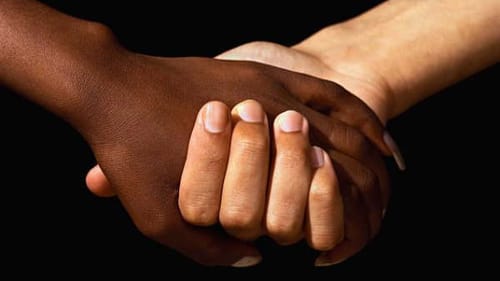Stay in the Loop
BSR publishes on a weekly schedule, with an email newsletter every Wednesday and Thursday morning. There’s no paywall, and subscribing is always free.
Beyond sheetcaking
Confederate monuments down, racists still standing

I recently learned that a former interim pastor at the church where I work as organist and music director lives in Charlottesville, Virginia. I recalled his Martin Luther King Day sermon, in which he condemned racism but also mentioned declining to hear Dr. King speak because of a date. I emailed him asking that he please stop joking about the South's revenge, since the Confederacy was all about keeping people who look like me in chains.
He responded that my comments were “too nuanced,” but stopped for a while. A few months later, he reverted to form, marking his last Sunday at our congregation by presenting the group of men with whom he'd met regularly for breakfast with replicas of caps worn by the Confederate army.
Many sharp ironies
Robert E. Lee, the Confederate general depicted in the statue at the center of the Charlottesville controversy, swore allegiance to the Union before he died and publicly denounced Southern separatism. Here are his words about erecting a memorial in Gettysburg: “I think it wiser . . . not to keep open the sores of war, but to follow the examples of those nations who endeavored to obliterate the marks of civil strife, to commit to oblivion the feelings engendered.” What irony that those who claim removing Confederate monuments equals rewriting history pay so little heed to their idol's own history.
Slavery and the racism associated with it are the United States’ original sins. But most people don't want to talk about sin unless the sinner is someone else. Thus, the media eagerly dissects the implications of President Donald Trump's intemperate remarks about Charlottesville, inviting talking heads to howl with outrage on one side or double down on the other. What Trump said (placing equal blame for the violence “on many sides”) and left unsaid (refusing to name as terrorism the attack that cost Heather Heyer her life) weigh on me. But my main reaction is numbness. As a black person, being the object of mindless hatred is nothing new. At least the current haters show their faces.
{photo_2}
Trump’s defenders justify his “many sides” comment by pointing to the actions of the small number of counterprotesters who rallied under the banner of antifa. These loosely organized antifascists believe in protecting nonviolence with violence, a premise that, to me, doesn't make sense. A young man calling himself “Frank Sabaté” (after a Spanish anarchist) claims he and his cohort swung bats and shields in self-defense when neo-Nazis came too close. But he also said, “Their existence itself is violent and dangerous, so I don’t think using force or violence to oppose them is unethical.”
I think this point can be easily argued. But I also find it disingenuous that the same people who advocate openly carrying firearms and “standing your ground” with deadly force over vaguely perceived threats criticize bringing baseball bats to an event whose organizer's main aim was physical intimidation.
An invitation to exit
After Charlottesville, I read long Facebook threads where black people tried hard to make our voices heard. Meanwhile, many white people were certain our view of reality is distorted. Some of these white people undoubtedly believe that racism ended after Obama's election. Some see familiar complaints as “whining.” Some believe, deep down, that white people truly are superior.
These unwitting supremacists don’t actively seek segregation, but they express their feelings of superiority every time they tell black people institutional racism isn't real. Another Facebook post summed it up this way: “Black people NEVER did to white people the things they did to us.” Various white people mentioned bullying at the hands of black attackers. I can say from personal experience that bullying is awful; however, until their tormenters rise to the level of officially sanctioned oppression, it's not the same.
“You have my permission to say goodbye,” a blog post by T. Kareem Powell about the way some white people react to racism, beautifully sums up the urge to stop the madness. He asks: “If a man is abusing a woman or child, do you tell the victims ‘Ignore it and it will go away?’ . . . [If not,] why would you think racism and racial harassment would go away?”

Powell’s essay invites those who don’t want to listen when he talks about race to exit his life. If we stop talking, we declare defeat. Former Canadian prime minister Pierre Trudeau once said, “A society that emphasizes uniformity is one that creates intolerance and hate.” Unfortunately, the notion of the “all-American” (code for white supremacists, as is “American culture”) is far too beloved in this country for Trudeau's philosophy to take root.
Share that sheetcake
Confronting racial intolerance is exhausting. That said, living with the knowledge that people with power and privilege think that — based on your skin color — you're worthless, is pretty damned exhausting, too.
Interestingly, one former skinhead described being consumed by hatred in the same way: exhausting. In a recent CNN discussion, the reformed racist agreed with Daryl Davis, a black minister who reaches out to members of hate groups, that the way to change neo-Nazis and their ilk is to “love them.” To which journalist Chris Cuomo responded, “That's a tall order.”
I agree, partially because this prescription puts the onus on everyone but the people being hateful, and partially because people only change when they're ready. Then again, if we can show love persistently regardless of the response, so the theory goes, love will win the day.
Who wants to go first?
Sign up for our newsletter
All of the week's new articles, all in one place. Sign up for the free weekly BSR newsletters, and don't miss a conversation.

 Maria Thompson Corley
Maria Thompson Corley